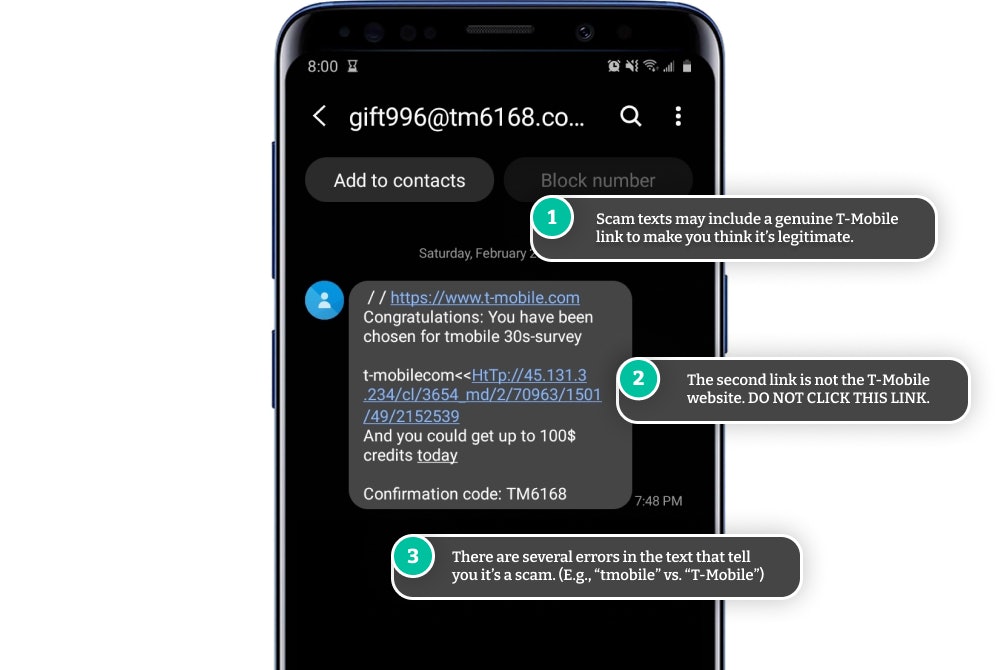Yes, the t-mo.co domain is a legitimate and official URL shortener used by T-Mobile for its text message communications. However, you should always be cautious before clicking any link, as scammers can try to imitate official messages to trick you into revealing personal information.
If you’ve received a text message containing a t-mo.co link and you’re wondering if it’s safe, this guide will explain what this domain is, why T-Mobile uses it, and—most importantly—how to tell the difference between a real message and a phishing scam.

What is T-mo.co and Why Does T-Mobile Use It?
T-mo.co is a “URL shortener.” In simple terms, T-Mobile owns and uses this domain to turn a very long web address into a short and manageable one.
For example, a long link like:
https://www.t-mobile.com/offers/special-deal-for-september-2025
Can be shortened to something like:
https://t-mo.co/deal123
T-Mobile does this for one primary reason: to save space in text messages (SMS). Text messages have a character limit, and a shorter link is cleaner, easier to read, and more reliable to send.
Common Legitimate Uses for a T-mo.co Link
You can expect to receive a legitimate t-mo.co link from T-Mobile in a variety of situations. These texts are usually sent from an official T-Mobile short code (a 4- to 6-digit number).
Common examples include:
- Promotional Offers: Links to new phone deals, plan discounts, or trade-in specials.
- Billing Alerts: A direct link to view or pay your monthly bill (e.g., t-mo.co/bill).
- Account Notifications: Information about changes you’ve made to your account or plan.
- Order Confirmations: Updates and tracking information for a new device you’ve ordered.
- Customer Support: A link to a support article to help you with an issue or a survey after you’ve spoken with a representative.
- T-Mobile Tuesdays: Links to redeem the weekly offers available through their rewards program.
How to Tell if a T-mo.co Text Message is a Scam (Crucial Safety Tips)
While the t-mo.co domain itself is legitimate, scammers are clever. They will send a fraudulent message hoping that the familiar link will cause you to let your guard down. Here is a checklist to verify if a message is real or a scam.
- Check the Context
Did you expect the message? If you get a text about an order you didn’t place or a bill that isn’t due, it’s a major red flag. Unsolicited messages that you have no context for are almost always suspicious.
- Look for Urgency and Threats
Scammers often create a false sense of urgency to make you act without thinking. Be wary of phrases like:
- “Your T-Mobile account has been suspended! Click here to reactivate.”
- “Suspicious activity detected on your line. Verify your identity NOW.”
- “You’ve won a prize! You must claim it in the next 10 minutes.”
Legitimate T-Mobile messages are typically informational and do not use high-pressure tactics.
- Does It Ask for Personal Information?
A real t-mo.co link will take you to the official, secure T-Mobile website (T-Mobile.com). If the page you land on immediately asks for your password, Social Security number, or full credit card details, be extremely suspicious.
- The Golden Rule: When in Doubt, Don’t Click
The safest action is always to not use the link in the text message. If the message says you have a new bill or a special offer, you can verify it by taking these steps:
- Open your phone’s web browser and manually type in T-Mobile.com to log in to your account securely.
- Open the official My T-Mobile app on your phone.
If the offer or alert is real, you will see it in your official account dashboard.
Frequently Asked Questions
So if the link is t-mo.co, it’s always safe to click?
No. While the domain is real, you must always check the context of the message. The safest practice is to go to the T-Mobile site or app directly instead of clicking any link in a text, especially if it was unexpected.
What if the link looks slightly different, like t-mo.co.biz or t-mobile-support.cc?
These are absolutely scams. Scammers create look-alike domains to trick you. The only official URL shortener used by T-Mobile is exactly t-mo.co.
I clicked a t-mo.co link and entered my password. What should I do?
If you suspect you may have clicked on a malicious link and entered your information, you need to act fast. Go to the official T-Mobile.com website immediately and change your account password and security PIN. You should also review your account for any unauthorized changes.
Does T-Mobile ever send links from other shorteners?
While t-mo.co is their primary branded URL shortener, they may use other standard short codes for specific text campaigns. However, t-mo.co is the one they own and use for a wide range of official communications.
Conclusion
In summary, t-mo.co is the legitimate and official URL shortener for T-Mobile. It is a safe domain used for a variety of valid customer communications. However, you must always remain vigilant. Scrutinize every message for signs of a scam, such as a sense of urgency, unexpected requests, or pleas for personal information. The safest way to access your account is always to go directly to the T-Mobile website or use the official app, not through a link in a text message.


